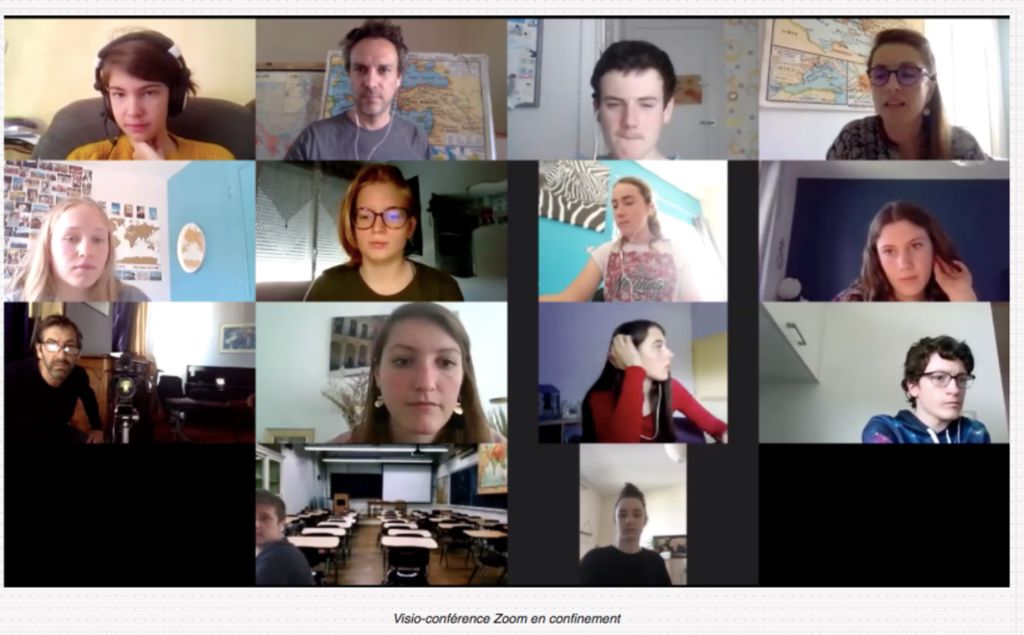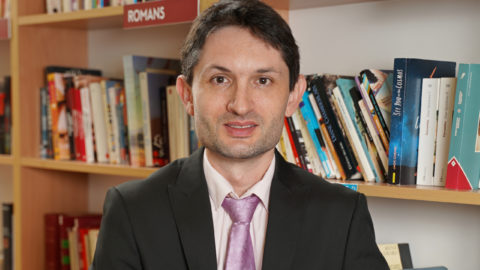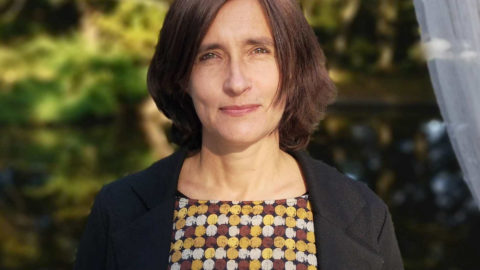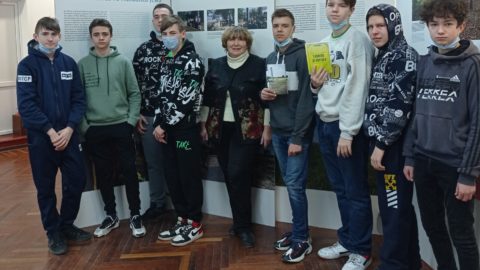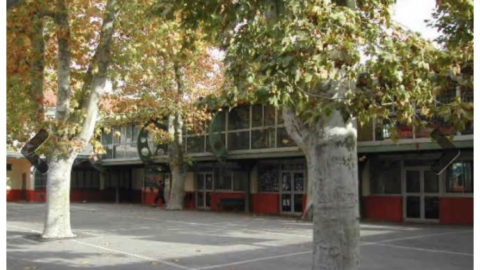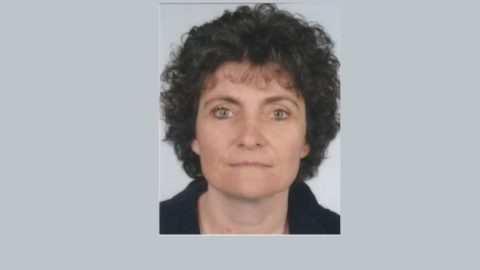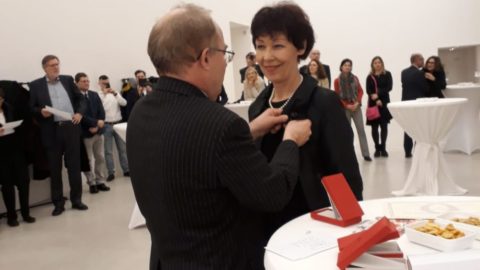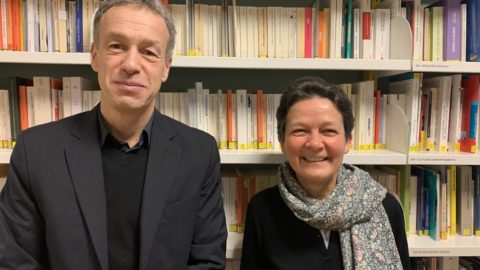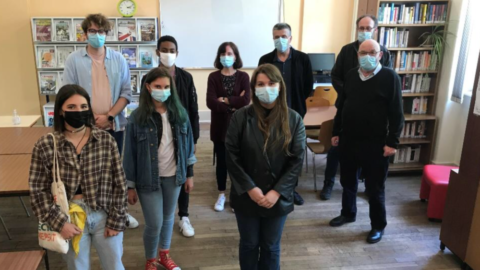Blandine Renard, Olivier Charnay and students from the Alexis Kandelaft high school in Chazay d’Azergues, in the Rhône department of France, worked on the biography of Eliette Meyer, who was murdered in Auschwitz at the age of 40. This work is one of eleven European projects chosen by the French Ministry of Education.
Please could you tell us about yourself and your class?
I am a History and Geography teacher. I participated in the Convoy 77 European project with ten 9th grade students who had volunteered. The work was carried out entirely during the lockdown in the spring of 2020, following a two-day trip to Poland organized by the Rhône departmental authorities.
I have been working for several years with Séverine Koprivnik, mediator of the Montluc prison National Memorial museum in Lyon, and we had already discussed a potential shared project. After the trip to Poland, in February 2020, and the making of a video with the students, she suggested in April that I participate in the project in order to write the biography of Eliette Meyer.
Deported from Lyon on Convoy 77, together with her 15-and-a-half-year-old son, she died in Auschwitz on August 3, 1944. Her son, Mr. Claude Bloch, a survivor, had already testified in my class a year earlier.
I did not embark on this adventure alone. In fact, I have been working for more than ten years with a colleague in classics, Olivier Charnay, and after a short period of reflection, we decided to write the biography and to do research with the student volunteers.
How did you organize this group work in the context of the Convoy 77 project?
It was a very unusual situation, with everyone in lockdown, with remote learning and no possibility of meeting. Our school’s management supported us greatly and Olivier Charnay put in place all the digital tools to enable the project to move forward.
We were four adults in charge of the project during the lockdown: Olivier Charnay and myself as teachers, Séverine Koprivnik, who gave us access to the archives, and Philippe Perron from the Canopé network who followed the project to make a twenty-minute film.
We had decided, in fact, when we first started work on the project, to present the project in two different ways: the biography of Eliette Meyer and a film showing how we worked in these extraordinary conditions during the lockdown.
We therefore organized a system of weekly videoconferences, during which the whole group was filmed, the sharing of digital resources via platforms such as Discord and Zoom and writing workshops using collaborative text editors such as Framapad.
The students were divided into work groups. They had to film themselves working at home, connecting with their peers by phone or via social networks. We thus remained closely connected even during lockdown, and the students showed remarkable interest and ingenuity. In particular, they recorded voice-overs from home.
After the lockdown, in June 2020, we were able to interview Claude Bloch at the Montluc prison Memorial museum. For the students, this meeting was the highlight of the project. The film was then edited by Philippe Perron and Olivier Charnay and officially presented to the school in the presence of Mr. Claude Bloch and the members of the Convoy 77 project team.
What impact has this work had, from an individual point of view (on you personally and on the students) and also more broadly (on the school, the municipality and others)?
This was a deeply personal, human experience.
Indeed, the very nature of the project and the meaning that the students were able to give it, with our help, guided the research in the archives, the questions asked and the verifications needed to better understand what had happened, then to retrace and tell the story of a Holocaust victim. They learned about the annihilation and about the people who disappeared, sometimes without there being any records or recollections of them.
The ten students have become more independent and disciplined as a result of their research. But above all, they have grown and matured by participating in this project and have become aware of their role as transmitters of the memory of the Holocaust.
The atypical way in which the project was organized, having begun and been undertaken remotely during the lockdown, and completed in a limited time because our students were leaving the school for good at the end of June, enabled bonds of trust to be made between the students, with the students and between ourselves. We had to endure the lockdown but it is also thanks to the lockdown that we were able to produce this biography together in this way.
This project also brought together several parents who supported us during the research and sometimes even helped us out.
The biography was very warmly received when it was presented to the school in the presence of representatives of the education authority, the Rhone departmental authorities and Mr. Claude Bloch.
It was then shared on social networks and was covered by the regional media in several newspaper articles, a radio program and a few minutes on the TV news on France 3 Lyon.
Your work was chosen as one of the most noteworthy projects. How do you and/or the students feel about that?
First and foremost, everyone was overcome with emotion. The students were very moved that their work had been appreciated, and also by Mr. Bloch’s words about the biography of his mother. He had trusted us, confided in us and agreed to entrust us with the one and only photo of his mother.
There was also a great deal of pride in the work we had accomplished between us, given the conditions and the organizational difficulty, with each of us at home in lockdown.
I also had the honor of presenting the project during the summer school at the Shoah Memorial in Paris.
Our greatest achievement was the fact that students were able to tell others all about Eliette Meyer’s life.
What advice would you give to other teachers who would like to participate in the project?
WORK AS A TEAM! Work with colleagues from similar or other disciplines. Secondly, find partners from outside the State education system, in museums, memorial organizations and archives services.
Don’t hesitate to make the students responsible for their own work by assigning them specific tasks and leaving them to research, make calls and send emails etc. themselves.
I would also advise teachers not to focus on results but rather to try to retrace a life story, even if it has gaps and omissions, in order to bring the memory of the Holocaust alive. Work with the students, using their communication tools.
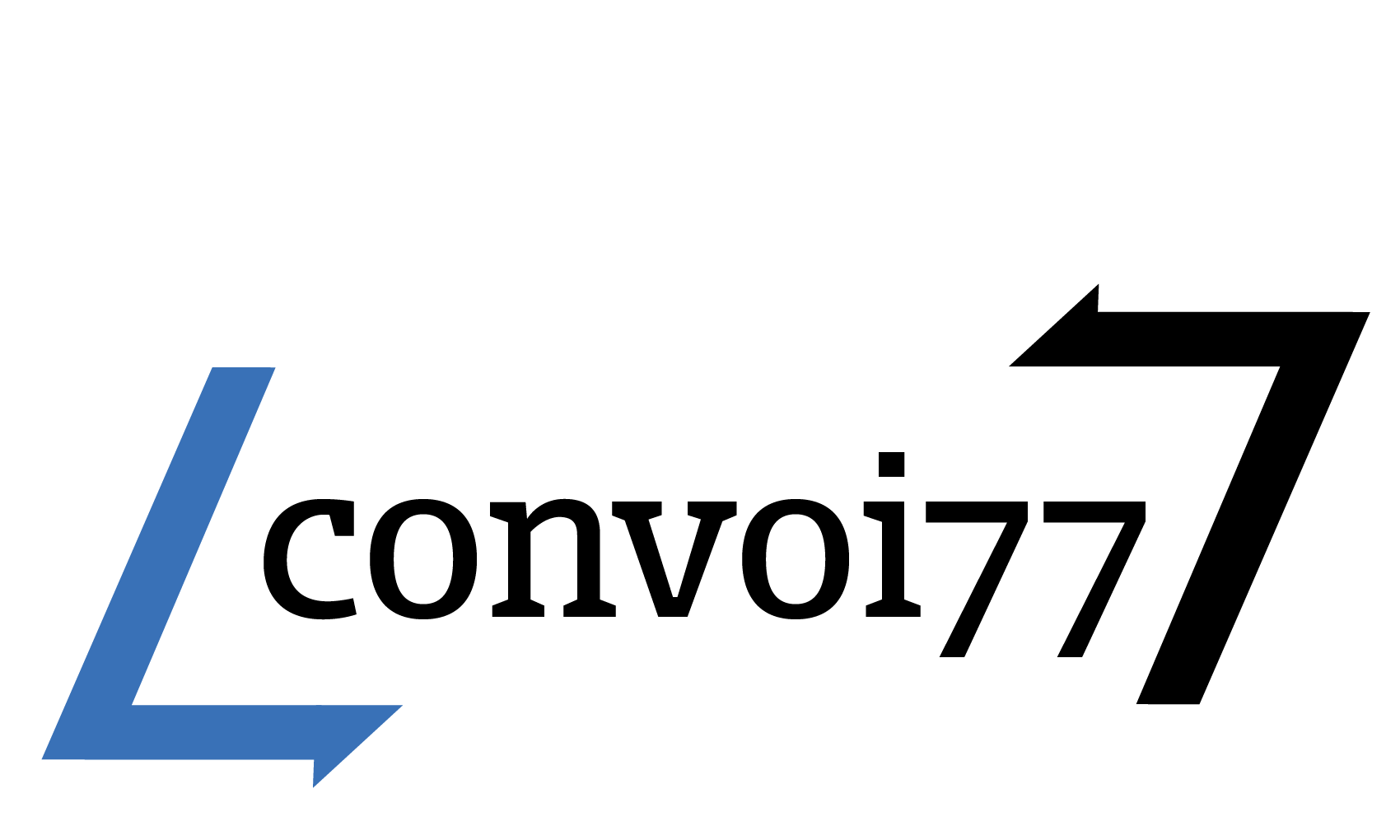

 Français
Français Polski
Polski